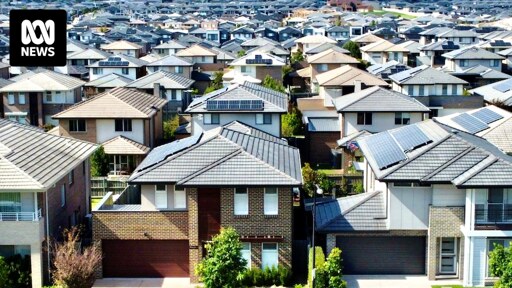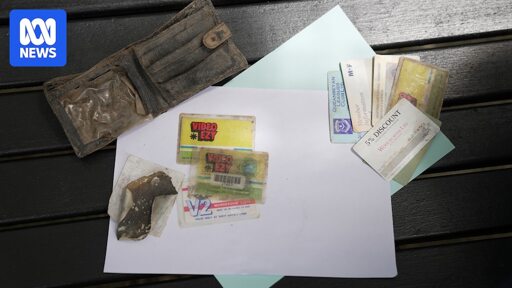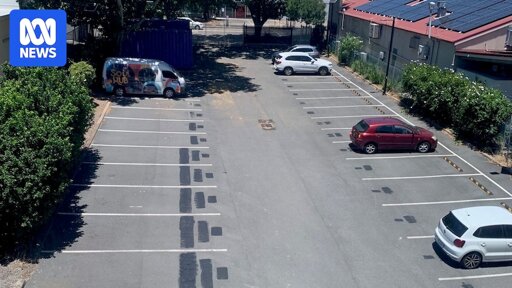Zagorath
Formerly /u/Zagorath on the alien site.
- 10 Posts
- 13 Comments

 7·6 days ago
7·6 days agoJust fyi, assuming you’re not from around here, most of our transport requires a Go Card already. They don’t often take cash.

 1·7 days ago
1·7 days agoNot quite. Our housing policy is based around returning value to investors. That leads to cruel outcomes, and these are considered acceptable for the sake of investor profit. But it’s not the terminal goal.

 6·7 days ago
6·7 days agoIt took me a second to realise what you meant, but it’s a very good point if I understand you correctly. Income from fares only offsets the cost of discounted travel if the wage of the people doing the enforcement (and any other overhead) is less than the amount brought in by that enforcement. Is that it?

 9·7 days ago
9·7 days agoFree fare advocates are killing the system by taking away a source of revenue that could instead be usedeto make the system better
Nonsense. It was already subsidised by over 80%, and that was before they reduced the fares to a flat 50 c. With fares now subsidised well over 95%, it’s likely that there would actually be more money left over if they didn’t have to pay Cubic for the expensive Go Card system and didn’t have to hire people to go around wearing body armour fining people who don’t pay.

 31·7 days ago
31·7 days agoNo, you clearly don’t understand their point. Because everybody (apart from lunatic libertarians) knows that when something is free because taxes pay for it, it’s completely different from free-because-they-sell-your-data or “free”-but-it’s-a-scam.

 11·7 days ago
11·7 days agoThey seem to be enforcing fares much like Frederick the Great guarded his potato fields.
They are absolutely not. If they were, it would be a good idea IMO. Keep the token fare to make tracking data easier and discourage bad behaviour. Enforce it only rarely, and mainly on routes where they have been said behaviour issues. But in fact reports are that their fare enforcement has not slowed down at all.

 4·7 days ago
4·7 days agoDrivers don’t even have to manually count by hand. They already have a button that they’re meant to use to track fare evaders, to collect data on which routes have the most evaders. Just repurpose that button to track all users.

 4·10 days ago
4·10 days agoBecause the image itself doesn’t have an explanation of the lines, here it is from the article:
This takes [a map of towns coloured by whether Aussie Rules or Rugby League is more popular] and draws a (red) line along the boundaries between the two codes. Have added Turner’s original description (pink) and the line as it’s most commonly drawn (black) as dotted lines to see how they compare, as well as the plaque meant to mark part of the line near the towns of Corowa (NSW) and Wahgunyah (VIC). The line to the west shows the divide between WA and the Cocos (Keeling) & Christmas islands.
The plaque mentioned is the small black square on the border between Vic and NSW, quite a way south of any of the lines.
Also, that map of towns coloured by which is more popular seems to be seriously flawed. The colours and cells on the map may or may not be correct, but the labels it shows when you hover over it are hilariously wrong. I hovered over a cell that covers The Entrance at Tuggerah Lake on the NSW Central Coast. That cell was red, surrounded by a bunch of blue cells. It told me this was Julia Creek, Qld, and that rugby league was the more popular sport.
I saw blue way off in the northwest around Christmas Island, which it told me was Charlsetown, NSW. I’m actually in St Lucia, Qld, where both clubs are equal, but on that map it tells me I’m in blue Tocumwal, NSW, where Aussie rules is more popular.
This problem was introduced somehow between the map of The Regions and the map of The Regions (with towns where both codes were equal removed), because the former is correct in the few I checked.

 12·12 days ago
12·12 days agoNo, blaming immigration is just a racist scapegoat. The amount of housing being built far outstrips the number of new households due to immigration. The problem is that the number of houses being bought by investors (instead of first home buyers) is almost equal to the number of new houses being built. Which is a problem caused by our incredibly harmful policies that treat housing as a financial instrument more than a right that people need to have. There’s also a huge number of completely empty homes—again, a problem caused by pro-investor policies.
There are also issues with our council policies around what kinds of housing can be built where. Restrictive zoning laws that prevent more efficient medium-density housing, instead of most of our cities being made up of low density zoning that uses obscene amounts of land, and a preference to use the highest zoning possible in the smallest number of places possible, when low density is not sufficient (which is more expensive per capita due to the higher costs of materials, labour, and technical requirements associated with high rises compared to 2–4 storey row houses and apartments). And a severe lack of investment in public housing from our state governments.
Tax incentives. Public housing. Zoning laws. This is a problem created by all three levels of government. But immigration? Not a significant factor.

 0·1 month ago
0·1 month agomost of the questions you raise don’t have good answers
I mean, that’s fine. But it’s a standard inclusion in an article, even if all you have to say is “the groom did not respond to our request for comment.” It makes it clear that you tried and he was not interested in explaining himself. As it’s written, it looks like they just couldn’t be bothered doing journalism.
Anyway, thanks for sharing that. It’s a wild read.
Minor side note:
When giving their evidence either viva voce or by affidavit, the applicant and the respondent were duty bound to comply with the stipulations in Kuhl v Zurich Financial Services Australia Ltd[6] where the High Court held that a witness must tell the truth, the whole truth and nothing but the truth
How is it that the citation for “a witness must tell the truth, the whole truth and nothing but the truth” only 13 years old‽
It must not be overlooked that I am not required to accept evidence, even uncontroverted evidence, if that evidence is contrary to the way events are likely to have occurred
Tell that to the High Court in Pell…

 0·1 month ago
0·1 month agoA woman in Australia has annulled her marriage after realising that a fake wedding ceremony she took part in for a social media stunt was in fact real.
What an absolutely wild story this was. Disappointed in the BBC’s reporting though. No mention of the groom’s side of this. Not what he said to the court (or mention that he did not speak in court), nor anything he might have posted on social media later (surely the drama of all this would have been worth it for more clicks?), nor any mention of an attempt to reach out to him to comment on the story itself.
Not that I think it would exonerate him even slightly, but I just want to see how he could possibly try to defend this. It would have added to the amusement, as well as just being basic good journalistic practices.

 0·5 months ago
0·5 months agoI can’t see any reasonable explanation for Korea and Japan not being the same category.









RTI, not FOI. But one could certainly try. Given it’s allegedly security though, I wouldn’t like your chances of success. There seems to be a pretty strong reluctance to turn over documents when a security threat is alleged.